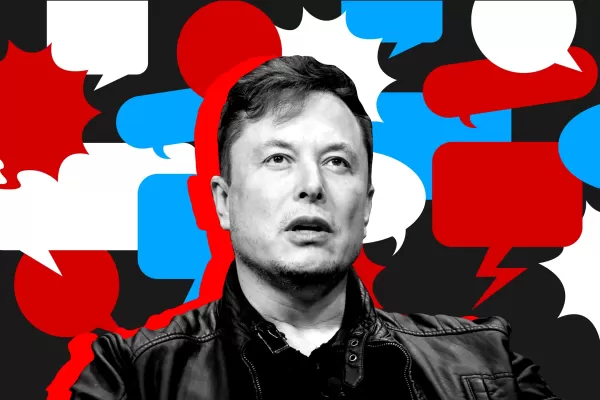Trump Plans to Overturn Biden's AI Chip Export Controls
Trump's AI Chip Policy Reversal: A New Direction for Global Tech
This week, the Trump administration announced a significant shift in AI chip policy, set to dismantle the complex three-tier regulatory framework established by the Biden administration. This move, scheduled to take effect on May 15, 2025, aims to reshape the flow of advanced computing technologies across global markets.
The Biden administration's Framework for Artificial Intelligence Diffusion would have created a stratified global technology landscape, with profound effects on international trade, innovation, and geopolitical relationships. However, the Trump administration views this approach as overly complex and bureaucratic, according to a Commerce Department spokesperson speaking to Reuters. "The Biden AI rule would stymie American innovation," they stated, emphasizing that a simpler rule will be introduced to "free American innovation and ensure American AI dominance."
Understanding the Three-Tier System
The soon-to-be-abolished rule established a hierarchical structure for global technology access. The first tier, consisting of 17 countries plus Taiwan, would have enjoyed unlimited access to advanced AI chips. A second tier of around 120 countries would have faced strict numerical caps on their imports. The third tier, including China, Russia, Iran, and North Korea, would have been completely blocked from accessing these technologies.
This structured approach aimed to prevent advanced technologies from reaching countries of concern through intermediaries while still allowing access for allies and neutral nations. Critics, however, argued that the system's complexity would create significant compliance burdens and push international partners toward alternative suppliers.
The New Approach Taking Shape
Instead of the tiered system, the Trump administration is reportedly considering a global licensing regime supported by inter-governmental agreements. This approach, according to sources cited by Reuters, could offer more flexibility while maintaining control over sensitive technology.
The timing of the announcement seems strategic, aligning with President Trump's upcoming trip to the Middle East. Countries like Saudi Arabia and the United Arab Emirates have expressed frustration over existing restrictions on their acquisition of AI chips. The Commerce Department's decision could be announced as early as Thursday, a source familiar with the matter told Reuters.
Market Reaction and Industry Impact
The policy reversal has already caused ripples in financial markets. Shares of Nvidia, a leading manufacturer of chips used for training AI models, rose by 3% on May 7 following the announcement, though they dipped 0.7% in after-hours trading. Nvidia CEO Jensen Huang has consistently opposed growing US restrictions, arguing that American companies should be able to sell into China, predicting it will become a $50 billion market for AI chips in the coming years.
It's worth noting, however, that the Trump administration's shift does not signal a complete abandonment of export controls. The administration has taken strong action against China, specifically banning Nvidia from selling its H20 chip there, a move costing the company $5.5 billion in writedowns, according to Bloomberg.
Global Winners and Losers
The policy reversal creates a complex map of potential winners and losers. Countries like India and Malaysia, which hadn't faced chip restrictions before the Biden rule was unveiled in January, will see temporary relief. In Malaysia, this could particularly benefit Oracle Corporation, which has plans for a massive data centre expansion that would have exceeded limits established by the rules governing AI hardware distribution.
Middle Eastern nations also stand to gain. The UAE and Saudi Arabia, which have faced chip export controls since 2023, may now be able to negotiate more favorable terms. Trump has expressed interest in easing restrictions for the UAE specifically and could announce the beginning of work on a government-to-government AI chip agreement during his upcoming visit to the region from May 13 to 16.
The UAE's aggressive pursuit of such an agreement, backed by its pledge to invest up to $1.4 trillion in US technology and infrastructure over the next decade, highlights the high stakes involved for countries aiming to become AI powerhouses.
Uncertainty Ahead
According to Axios, the Trump administration is currently developing a new control scheme, which could emerge as either a new rule or an executive order. The transition period creates significant uncertainty for companies like Nvidia regarding the regulatory environment they'll face in the coming months.
While the new framework takes shape, the administration has indicated it will continue enforcing existing chip export controls. One potential element of the new approach might involve imposing controls specifically on countries that have diverted chips to China, including Malaysia and Thailand, according to a source familiar with the matter.
Industry stakeholders remain divided on the issue. While chip manufacturers have lobbied aggressively against strict export controls, some AI companies, including Anthropic, have advocated for maintaining protections that safeguard US intellectual property and technological advantages.
Balancing Competing Priorities
The Biden administration's export controls were designed to limit access to chips needed for cutting-edge AI development, with a particular focus on preventing Chinese firms from finding indirect routes to technology that existing export controls prevented them from importing directly.
Creating a balanced approach that addresses national security concerns while promoting US commercial interests presents significant challenges. Establishing agreements with a wide range of countries eager to purchase advanced AI chips would require navigating complex diplomatic relationships and potentially creating dozens of separate policy frameworks.
The Commerce Department has not provided a specific timeline for when any new rules are to be finalized or implemented, only indicating that debate continues on the optimal approach forward.
The shift in Trump AI chip policy reflects the administration's broader emphasis on American competitiveness and innovation while still maintaining control over technologies with national security implications. As officials work to craft a replacement framework, the global AI chip market remains in flux, with profound implications for technological development, international relations, and corporate strategies in the evolving artificial intelligence landscape.
Related article
 Elon Musk's Grok AI Seeks Owner's Input Before Tackling Complex Queries
The recently released Grok AI—promoted by Elon Musk as a "maximally truth-seeking" system—has drawn attention for its tendency to consult Musk's public statements before responding to politically sensitive topics. Observers note that when addressing
Elon Musk's Grok AI Seeks Owner's Input Before Tackling Complex Queries
The recently released Grok AI—promoted by Elon Musk as a "maximally truth-seeking" system—has drawn attention for its tendency to consult Musk's public statements before responding to politically sensitive topics. Observers note that when addressing
 AI Accelerates Scientific Research for Greater Real-World Impact
Google has consistently harnessed AI as a catalyst for scientific progress, with today's pace of discovery reaching extraordinary new levels. This acceleration has transformed the research cycle, turning fundamental breakthroughs into practical appli
AI Accelerates Scientific Research for Greater Real-World Impact
Google has consistently harnessed AI as a catalyst for scientific progress, with today's pace of discovery reaching extraordinary new levels. This acceleration has transformed the research cycle, turning fundamental breakthroughs into practical appli
 "Exploring AI Safety & Ethics: Insights from Databricks and ElevenLabs Experts"
As generative AI becomes increasingly affordable and widespread, ethical considerations and security measures have taken center stage. ElevenLabs' AI Safety Lead Artemis Seaford and Databricks co-creator Ion Stoica participated in an insightful dia
Comments (1)
0/200
"Exploring AI Safety & Ethics: Insights from Databricks and ElevenLabs Experts"
As generative AI becomes increasingly affordable and widespread, ethical considerations and security measures have taken center stage. ElevenLabs' AI Safety Lead Artemis Seaford and Databricks co-creator Ion Stoica participated in an insightful dia
Comments (1)
0/200
![DennisGarcia]() DennisGarcia
DennisGarcia
 August 22, 2025 at 7:01:22 PM EDT
August 22, 2025 at 7:01:22 PM EDT
Trump's AI chip policy flip is wild! 🚀 Feels like a big win for tech giants like Nvidia, but I wonder if this'll spark a global chip race. Exciting times!


 0
0
Trump's AI Chip Policy Reversal: A New Direction for Global Tech
This week, the Trump administration announced a significant shift in AI chip policy, set to dismantle the complex three-tier regulatory framework established by the Biden administration. This move, scheduled to take effect on May 15, 2025, aims to reshape the flow of advanced computing technologies across global markets.
The Biden administration's Framework for Artificial Intelligence Diffusion would have created a stratified global technology landscape, with profound effects on international trade, innovation, and geopolitical relationships. However, the Trump administration views this approach as overly complex and bureaucratic, according to a Commerce Department spokesperson speaking to Reuters. "The Biden AI rule would stymie American innovation," they stated, emphasizing that a simpler rule will be introduced to "free American innovation and ensure American AI dominance."
Understanding the Three-Tier System
The soon-to-be-abolished rule established a hierarchical structure for global technology access. The first tier, consisting of 17 countries plus Taiwan, would have enjoyed unlimited access to advanced AI chips. A second tier of around 120 countries would have faced strict numerical caps on their imports. The third tier, including China, Russia, Iran, and North Korea, would have been completely blocked from accessing these technologies.
This structured approach aimed to prevent advanced technologies from reaching countries of concern through intermediaries while still allowing access for allies and neutral nations. Critics, however, argued that the system's complexity would create significant compliance burdens and push international partners toward alternative suppliers.
The New Approach Taking Shape
Instead of the tiered system, the Trump administration is reportedly considering a global licensing regime supported by inter-governmental agreements. This approach, according to sources cited by Reuters, could offer more flexibility while maintaining control over sensitive technology.
The timing of the announcement seems strategic, aligning with President Trump's upcoming trip to the Middle East. Countries like Saudi Arabia and the United Arab Emirates have expressed frustration over existing restrictions on their acquisition of AI chips. The Commerce Department's decision could be announced as early as Thursday, a source familiar with the matter told Reuters.
Market Reaction and Industry Impact
The policy reversal has already caused ripples in financial markets. Shares of Nvidia, a leading manufacturer of chips used for training AI models, rose by 3% on May 7 following the announcement, though they dipped 0.7% in after-hours trading. Nvidia CEO Jensen Huang has consistently opposed growing US restrictions, arguing that American companies should be able to sell into China, predicting it will become a $50 billion market for AI chips in the coming years.
It's worth noting, however, that the Trump administration's shift does not signal a complete abandonment of export controls. The administration has taken strong action against China, specifically banning Nvidia from selling its H20 chip there, a move costing the company $5.5 billion in writedowns, according to Bloomberg.
Global Winners and Losers
The policy reversal creates a complex map of potential winners and losers. Countries like India and Malaysia, which hadn't faced chip restrictions before the Biden rule was unveiled in January, will see temporary relief. In Malaysia, this could particularly benefit Oracle Corporation, which has plans for a massive data centre expansion that would have exceeded limits established by the rules governing AI hardware distribution.
Middle Eastern nations also stand to gain. The UAE and Saudi Arabia, which have faced chip export controls since 2023, may now be able to negotiate more favorable terms. Trump has expressed interest in easing restrictions for the UAE specifically and could announce the beginning of work on a government-to-government AI chip agreement during his upcoming visit to the region from May 13 to 16.
The UAE's aggressive pursuit of such an agreement, backed by its pledge to invest up to $1.4 trillion in US technology and infrastructure over the next decade, highlights the high stakes involved for countries aiming to become AI powerhouses.
Uncertainty Ahead
According to Axios, the Trump administration is currently developing a new control scheme, which could emerge as either a new rule or an executive order. The transition period creates significant uncertainty for companies like Nvidia regarding the regulatory environment they'll face in the coming months.
While the new framework takes shape, the administration has indicated it will continue enforcing existing chip export controls. One potential element of the new approach might involve imposing controls specifically on countries that have diverted chips to China, including Malaysia and Thailand, according to a source familiar with the matter.
Industry stakeholders remain divided on the issue. While chip manufacturers have lobbied aggressively against strict export controls, some AI companies, including Anthropic, have advocated for maintaining protections that safeguard US intellectual property and technological advantages.
Balancing Competing Priorities
The Biden administration's export controls were designed to limit access to chips needed for cutting-edge AI development, with a particular focus on preventing Chinese firms from finding indirect routes to technology that existing export controls prevented them from importing directly.
Creating a balanced approach that addresses national security concerns while promoting US commercial interests presents significant challenges. Establishing agreements with a wide range of countries eager to purchase advanced AI chips would require navigating complex diplomatic relationships and potentially creating dozens of separate policy frameworks.
The Commerce Department has not provided a specific timeline for when any new rules are to be finalized or implemented, only indicating that debate continues on the optimal approach forward.
The shift in Trump AI chip policy reflects the administration's broader emphasis on American competitiveness and innovation while still maintaining control over technologies with national security implications. As officials work to craft a replacement framework, the global AI chip market remains in flux, with profound implications for technological development, international relations, and corporate strategies in the evolving artificial intelligence landscape.
 Elon Musk's Grok AI Seeks Owner's Input Before Tackling Complex Queries
The recently released Grok AI—promoted by Elon Musk as a "maximally truth-seeking" system—has drawn attention for its tendency to consult Musk's public statements before responding to politically sensitive topics. Observers note that when addressing
Elon Musk's Grok AI Seeks Owner's Input Before Tackling Complex Queries
The recently released Grok AI—promoted by Elon Musk as a "maximally truth-seeking" system—has drawn attention for its tendency to consult Musk's public statements before responding to politically sensitive topics. Observers note that when addressing
 AI Accelerates Scientific Research for Greater Real-World Impact
Google has consistently harnessed AI as a catalyst for scientific progress, with today's pace of discovery reaching extraordinary new levels. This acceleration has transformed the research cycle, turning fundamental breakthroughs into practical appli
AI Accelerates Scientific Research for Greater Real-World Impact
Google has consistently harnessed AI as a catalyst for scientific progress, with today's pace of discovery reaching extraordinary new levels. This acceleration has transformed the research cycle, turning fundamental breakthroughs into practical appli
 "Exploring AI Safety & Ethics: Insights from Databricks and ElevenLabs Experts"
As generative AI becomes increasingly affordable and widespread, ethical considerations and security measures have taken center stage. ElevenLabs' AI Safety Lead Artemis Seaford and Databricks co-creator Ion Stoica participated in an insightful dia
"Exploring AI Safety & Ethics: Insights from Databricks and ElevenLabs Experts"
As generative AI becomes increasingly affordable and widespread, ethical considerations and security measures have taken center stage. ElevenLabs' AI Safety Lead Artemis Seaford and Databricks co-creator Ion Stoica participated in an insightful dia
 August 22, 2025 at 7:01:22 PM EDT
August 22, 2025 at 7:01:22 PM EDT
Trump's AI chip policy flip is wild! 🚀 Feels like a big win for tech giants like Nvidia, but I wonder if this'll spark a global chip race. Exciting times!


 0
0





























